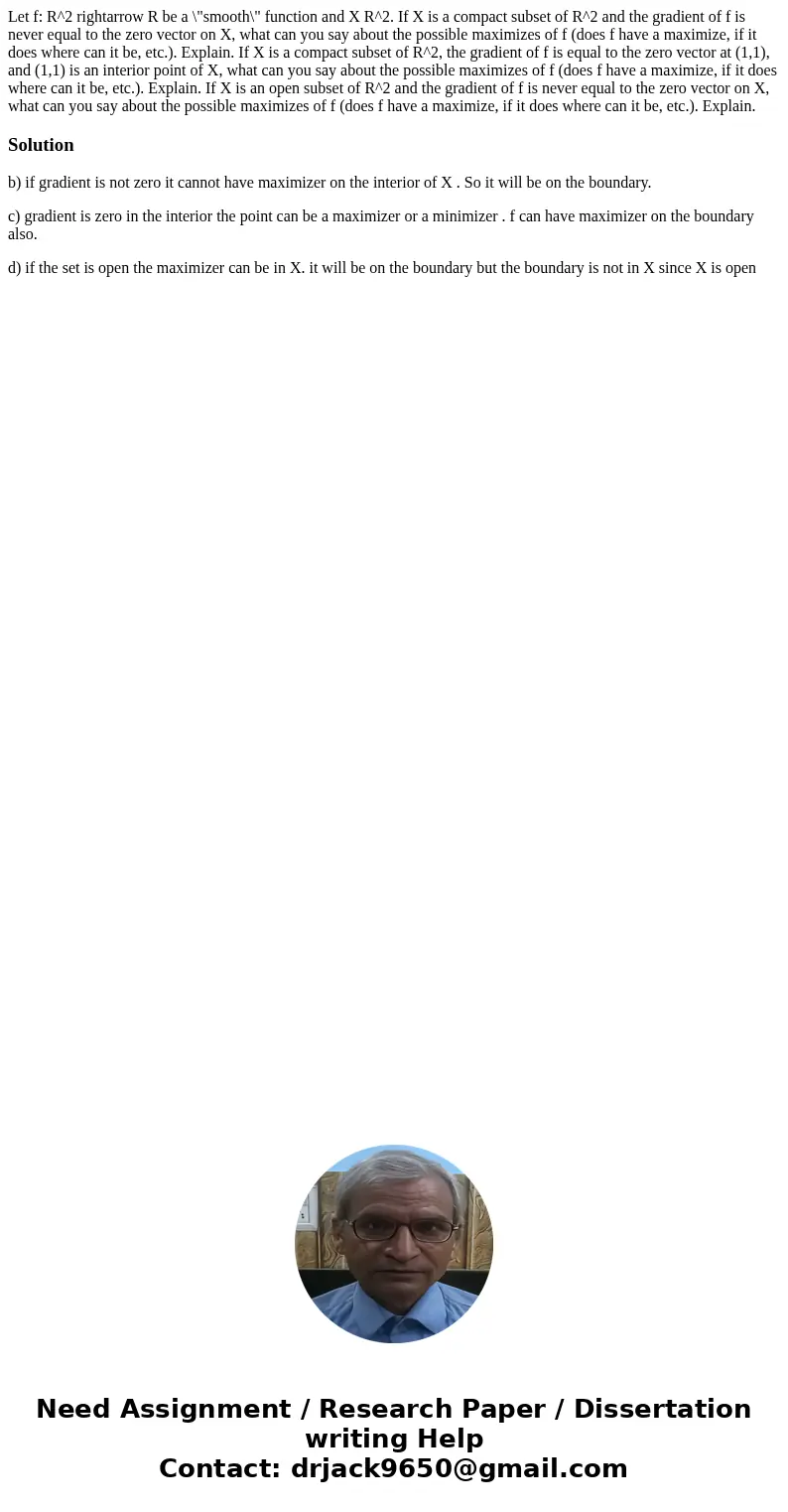Let f R2 rightarrow R be a smooth function and X R2 If X is
Let f: R^2 rightarrow R be a \"smooth\" function and X R^2. If X is a compact subset of R^2 and the gradient of f is never equal to the zero vector on X, what can you say about the possible maximizes of f (does f have a maximize, if it does where can it be, etc.). Explain. If X is a compact subset of R^2, the gradient of f is equal to the zero vector at (1,1), and (1,1) is an interior point of X, what can you say about the possible maximizes of f (does f have a maximize, if it does where can it be, etc.). Explain. If X is an open subset of R^2 and the gradient of f is never equal to the zero vector on X, what can you say about the possible maximizes of f (does f have a maximize, if it does where can it be, etc.). Explain.
Solution
b) if gradient is not zero it cannot have maximizer on the interior of X . So it will be on the boundary.
c) gradient is zero in the interior the point can be a maximizer or a minimizer . f can have maximizer on the boundary also.
d) if the set is open the maximizer can be in X. it will be on the boundary but the boundary is not in X since X is open

 Homework Sourse
Homework Sourse